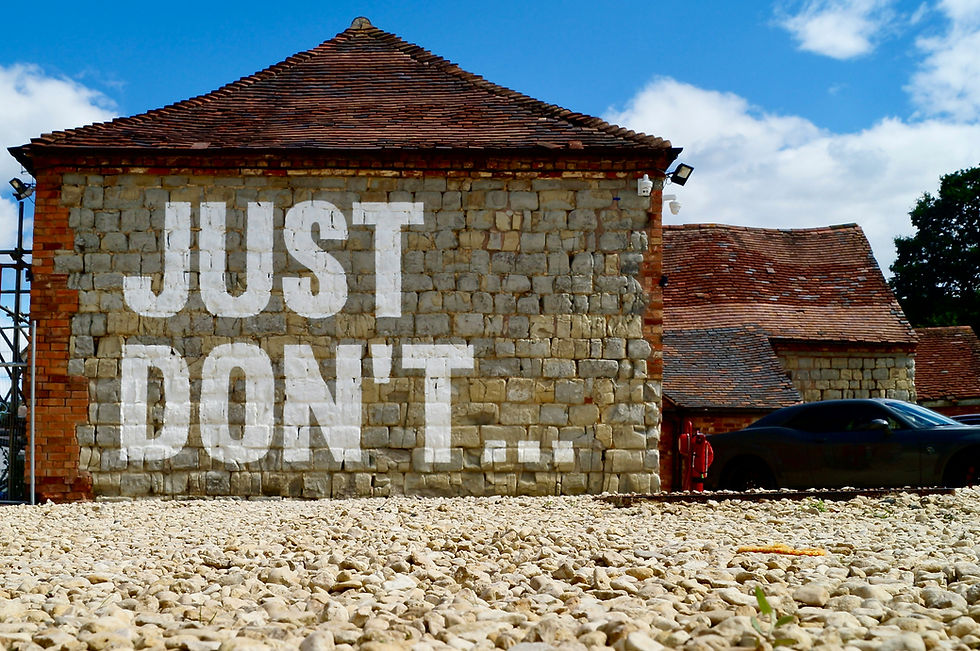When It Doesn’t Feel Like Love…
- Jessica Kiragu
- Nov 6, 2024
- 3 min read
This is a dilemma I never thought I'd face.

There’s people in my life who say they love me and my family, but it doesn’t feel like we’re loved. In fact, it feels like these folks are dangerous to us.
Some of my loved ones fail to recognize how they don't affirm the humanity of my children and partner. Our interactions are governed by norms and expectations that consistently undermine our—and others'—humanity and wholeness. This disconnect between professed love and actions that jeopardize well-being has created a troubling and harmful dynamic.
When I ask these loved ones to demonstrate their love by safeguarding our well-being, they often become entangled in their own hurt, confusion, or feelings of being attacked. The changes I've made to better love my family appear to be a personal affront to some of them. My family finds itself constantly reminding them that the lives they profess to love require active support and protection.
I'm not seeking to cause pain, create rifts, or stand on a moral high ground—despite what some might believe. At the heart of this lies a crucial imperative—safeguarding my children, partner, and our family unit from harm. It's about protection and love.
It deeply saddens me that those I feel compelled to protect us from are the very people I long for closeness with—those who know my history and once hoped for my future. For most of my life, they seemed to understand me best, and I thought I understood them. They were the ones with whom I believed I'd always share a sense of belonging.
While I love these folks, I'm certain I can't compromise on this. Their unwillingness to consider our perspective and the values they represent doesn't demonstrate love. Instead, their actions and beliefs pose a risk to my family's physical safety and emotional well-being.
This situation has been festering for years, slowly tearing at the fabric of our relationships. I found myself caught in a vicious cycle—striving for closeness with these loved ones, only to confirm once again that they're unable or unwilling to see how painful it is for my family to be around people who say they love us, but through their words and actions show us they don't.
With each passing day, I clung to the hope that we wouldn't arrive at this grievous impasse. But that hope has been irrevocably shattered. Lately, the relationship brings more grief than goodness.
I've repeatedly questioned whether I'm being unreasonable. I've examined my family's experiences and sought input from others. Yet, I consistently arrive at the same conclusion—this isn’t love, and it isn’t safe.
Loving one another well becomes incredibly challenging, perhaps impossible, when we can't be truthful about both the positive and negative aspects of our relationship. Without an openness to understanding each other's experiences, we can't truly know when or how the other person feels loved. There's a clear distinction between loving someone and feeling affection or fondness for them. You can't love my family while simultaneously participating in—or ignoring—the very things that harm us.
Time and experience have revealed a painful truth—some loved ones can't see or love us in the ways we desperately need. Pleas for support, whether quietly tearful or fiery, have been too big an ask. Our worries and lived reality are written off. Efforts to be the person my children and partner need me to be are met with opposition and rejection.
The realization that's crystallized for me is this—there can be no love without justice. It’s not asking too much to request that your humanity and life be valued equally to those most protected. You’re not being too much when you stand firm against the pressure to dehumanize yourself or others. Your wholeness isn’t a burden.
It's not unreasonable to ask loved ones to resist cultural norms and narratives that treat your life—or the lives of those you cherish—as expendable. When you ask loved ones to acknowledge your fears and lived experiences, you're seeking empathy and support—key components of any loving relationship.
If people who claim to love you can't prioritize your safety in a world where you're constantly at risk, it's not an overstatement to call them dangerous. When you repeatedly express that someone's beliefs or actions threaten your well-being, and they dismiss or ignore your concerns, it's reasonable to question whether their feelings for you truly constitute love. You deserve love—and love demands justice.




Comments